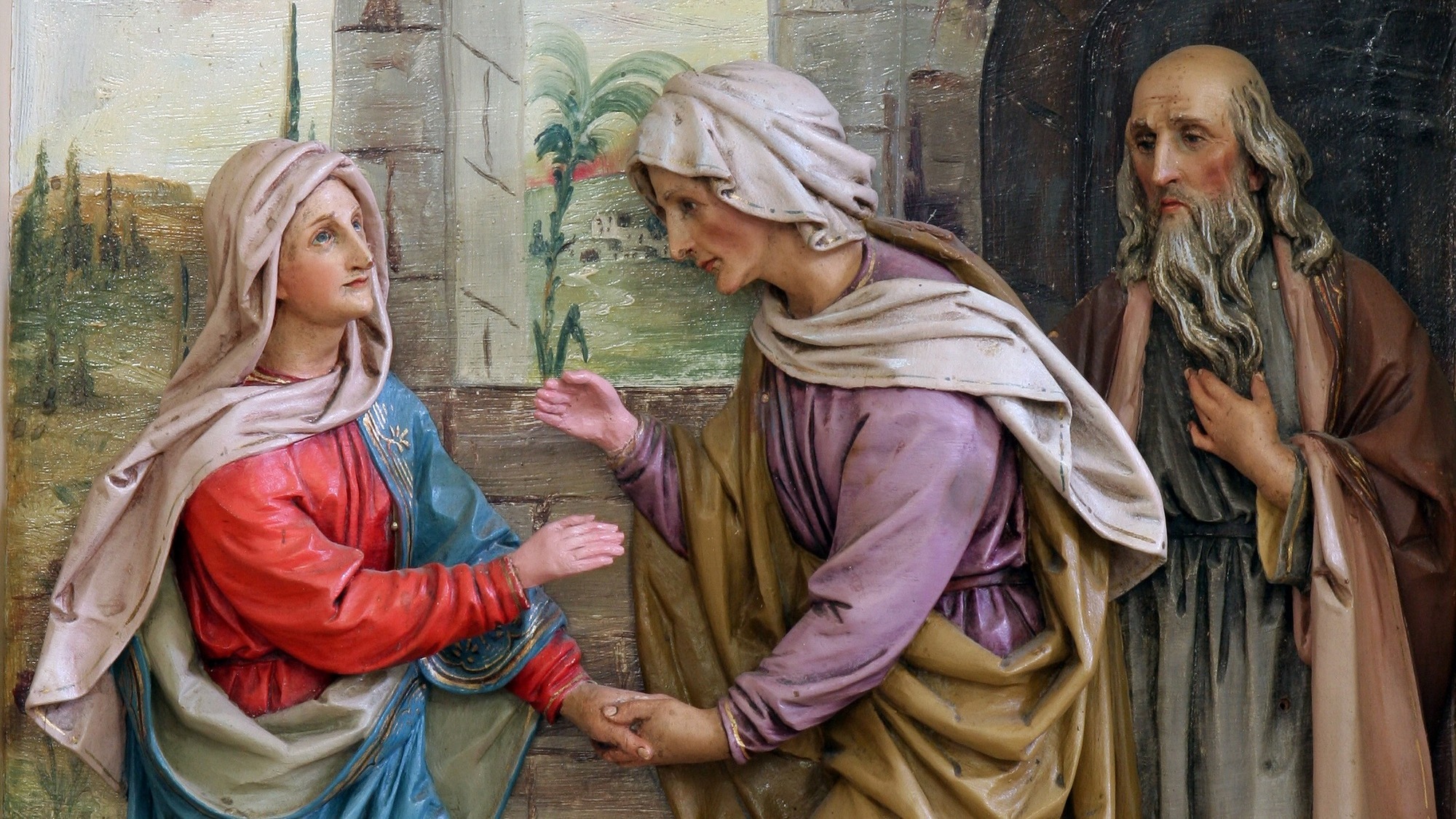Peace with God, Deliverance from Shame: The Gospel of Luke Chapter 1

Photo Credit: Zvonimir Atletic; from Shutterstock.com.
Disclosure: This post may contain affiliate links, meaning Beautiful Christian Life LLC may get a commission if you decide to make a purchase through its links, at no cost to you.
Is there something in your past you feel ashamed about? You’re not alone. Someone once told me that one of the downsides of growing older is having more to regret, because a person has had more opportunities to mess up.
In the book of Luke, we find shame in the very first chapter.
Zechariah’s wife, Elizabeth, was barren and long past childbearing age (Luke 1:7). To be barren in Israel at that time was a sign of God’s disfavor and judgment. Yet, Zechariah and Elizabeth were upstanding Israelites who loved the Lord (Luke 1:6), and it must have been hard for them to understand why God hadn’t given them children.
Just as Elizabeth’s womb had been unfruitful, so Israel had failed to produce the fruit of righteousness that God required of it (Isa. 5:7). Where once the nation had its own autonomous king, now it was forced to bear the indignities and oppression that came with being ruled by the pagan Roman Empire under the client king Herod I (Luke 1:5).
God was working a solution to take away Israel’s shame, but he also cared about something far greater.
Then one day the angel Gabriel appeared to Zechariah and announced that Elizabeth would give birth to a son named John who would prepare the way for the coming Messiah (Luke 1:13–17). God saw the shame of Elizabeth, and he saw the shame of Israel. He had a plan all along. Even though it seemed as if God had abandoned Zechariah’s family—and the entire nation—he was working his solution to take away their shame.
Yet, God cared about something far greater than Elizabeth’s barrenness and Israel’s political oppression. God cared about the redemption of the world from sin, misery, death, and estrangement. God cared so much that he sent his Son to be born in the flesh to rescue the world (John 3:16). God was working his solution to take away our shame.
Jesus took our shame upon himself on the cross.
As was the case with Elizabeth, not everything that makes us feel ashamed is of our own doing. Yet, even under the best of circumstances, we can’t ever rid ourselves entirely of shame, because we “all have sinned and fall short of the glory of God” (Rom. 3:23). The Bible diagnoses this problem to be indwelling sin, and we all have it (Rom. 7:17-25).
Only by keeping the law perfectly and being the once-for-all sacrifice for sin could Jesus redeem us from our guilt and God’s just judgment and punishment. Jesus did all we should have done and took our shame upon himself at the cross, bearing our sin willingly out of his unfathomable love for mankind (Isa. 53:1–12; Rom. 15:3; Gal. 3:13).
In Christ, we have peace from our self-condemnation and are beloved by him.
In Christ, we have peace from our self-condemnation that accuses us daily—and more importantly, we have peace with God (Rom. 5:1). We can rest in all God has done in Christ to remove our shame and present us before himself in clean, white robes washed in the precious blood of the Lamb of God (Rev. 7:14; 22:14).
We can rejoice that Christ’s perfect righteousness is counted to us, and our sin is counted to him through faith alone, which is itself a gift from God by his grace alone (Eph. 2:8–9).
In the sight of God we matter, have infinite value, and are beloved by him. All who trust in Christ alone for salvation are God’s precious children, and Jesus’ resurrection from the dead guarantees our own future resurrection to live forever with him. Because of what Jesus did on our behalf, we too can say with Elizabeth,
Thus the Lord has done for me in the days when he looked on me, to take away my reproach among people. (Luke 1:25)
This is the gospel, and it is glorious.
This article is adapted from “Peace, Not Shame: The Gospel of Luke Ch. 1” at corechristianity.com and was originally published at Beautiful Christian Life on December 17, 2019.
Related Articles:
- A Mountain Range Christmas: Why the Baby in the Manger Is Also the Lion on the Throne
- O Come, O Come, Emmanuel
- Who Are Those Guys? The Three Wise Men and What You Need to Know About Them
- Christmas—the Interrupter of Winter
- 3 Ways People Responded to the News of Jesus’ Birth in Matthew’s Gospel—and What It Means for You Today

